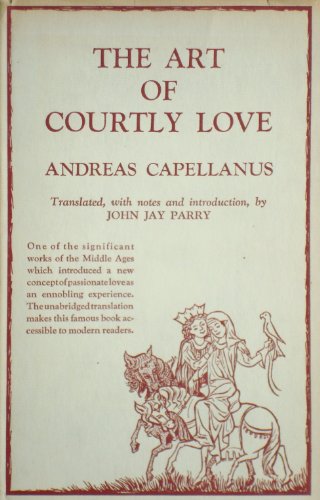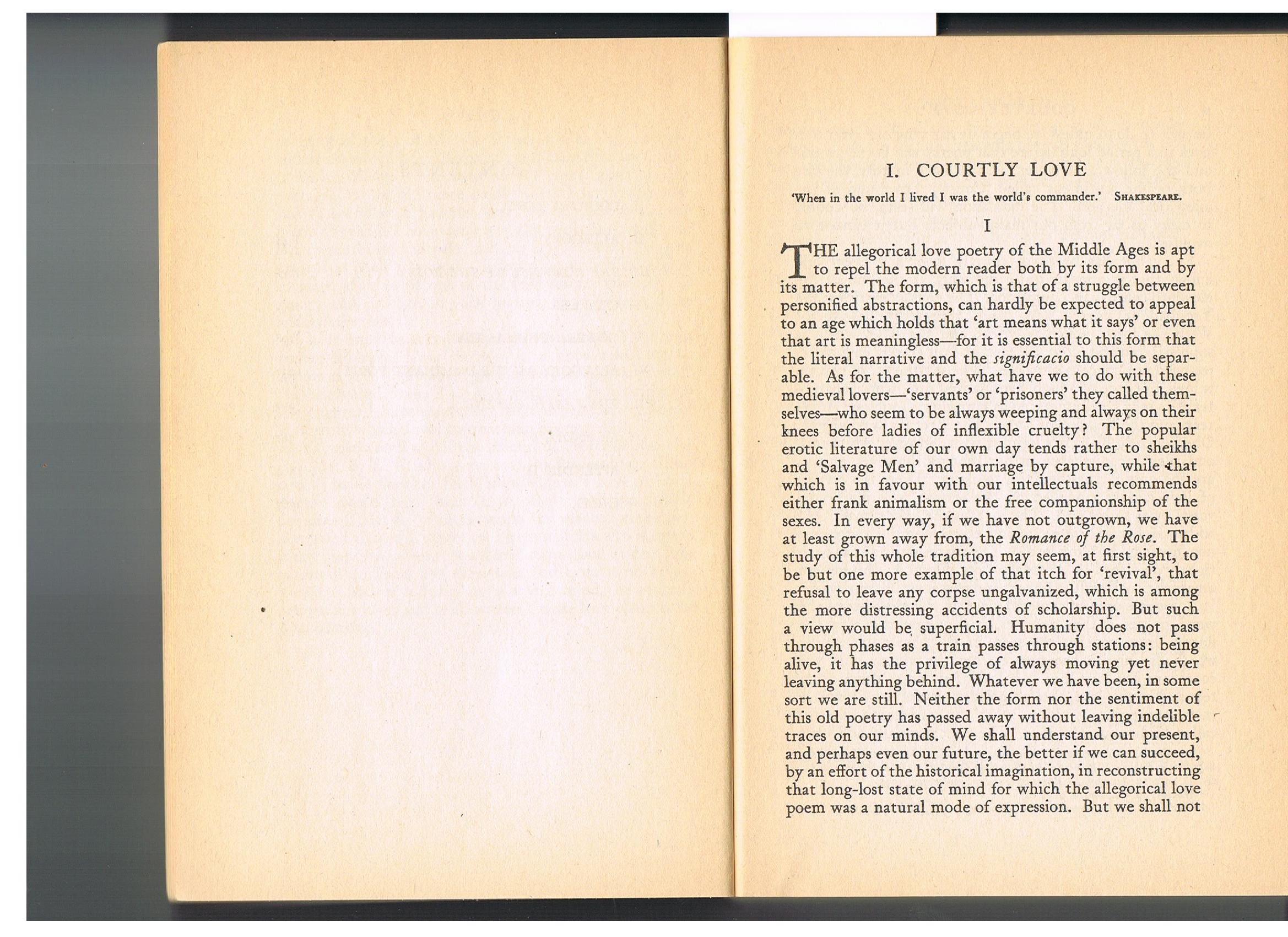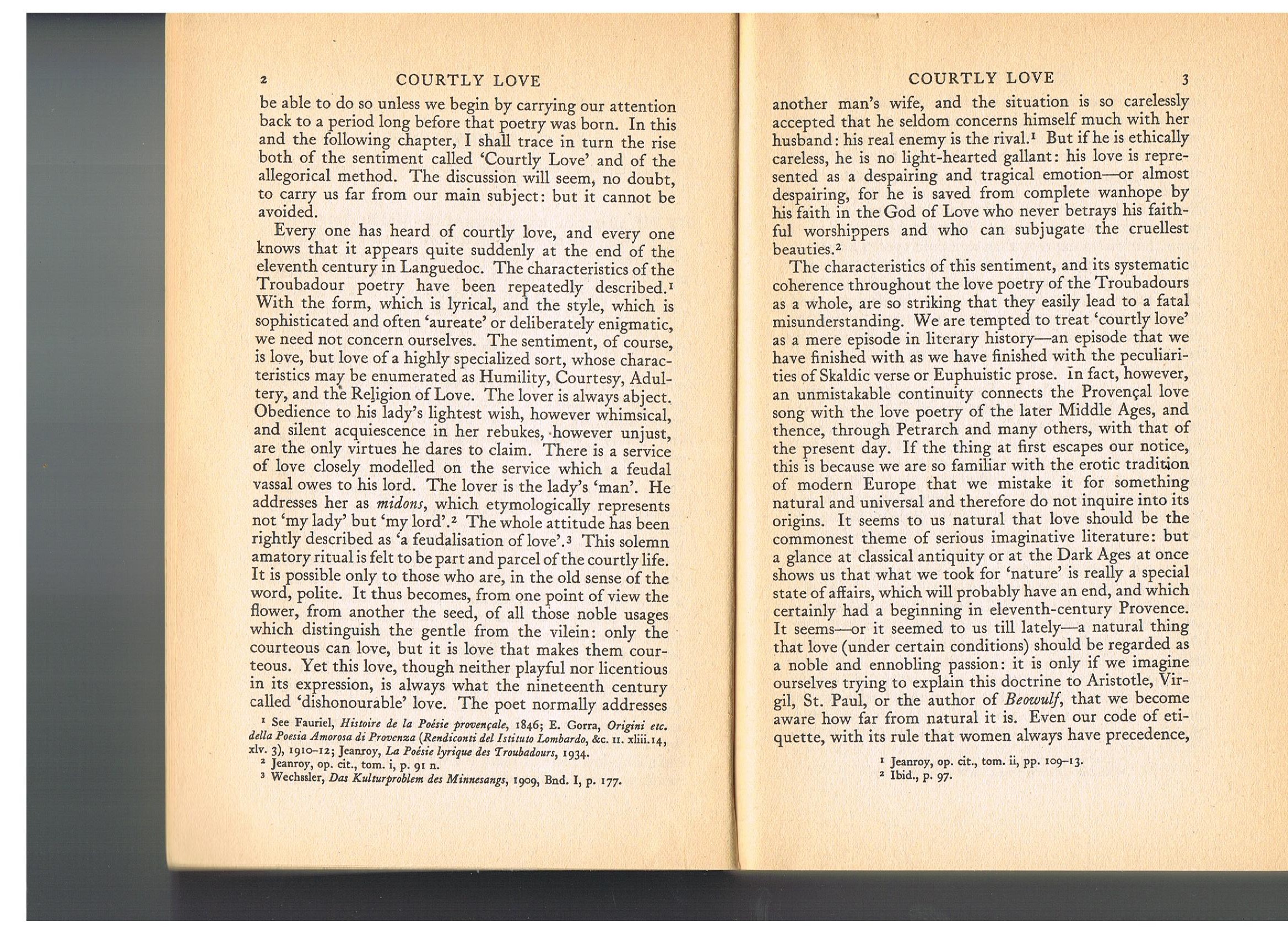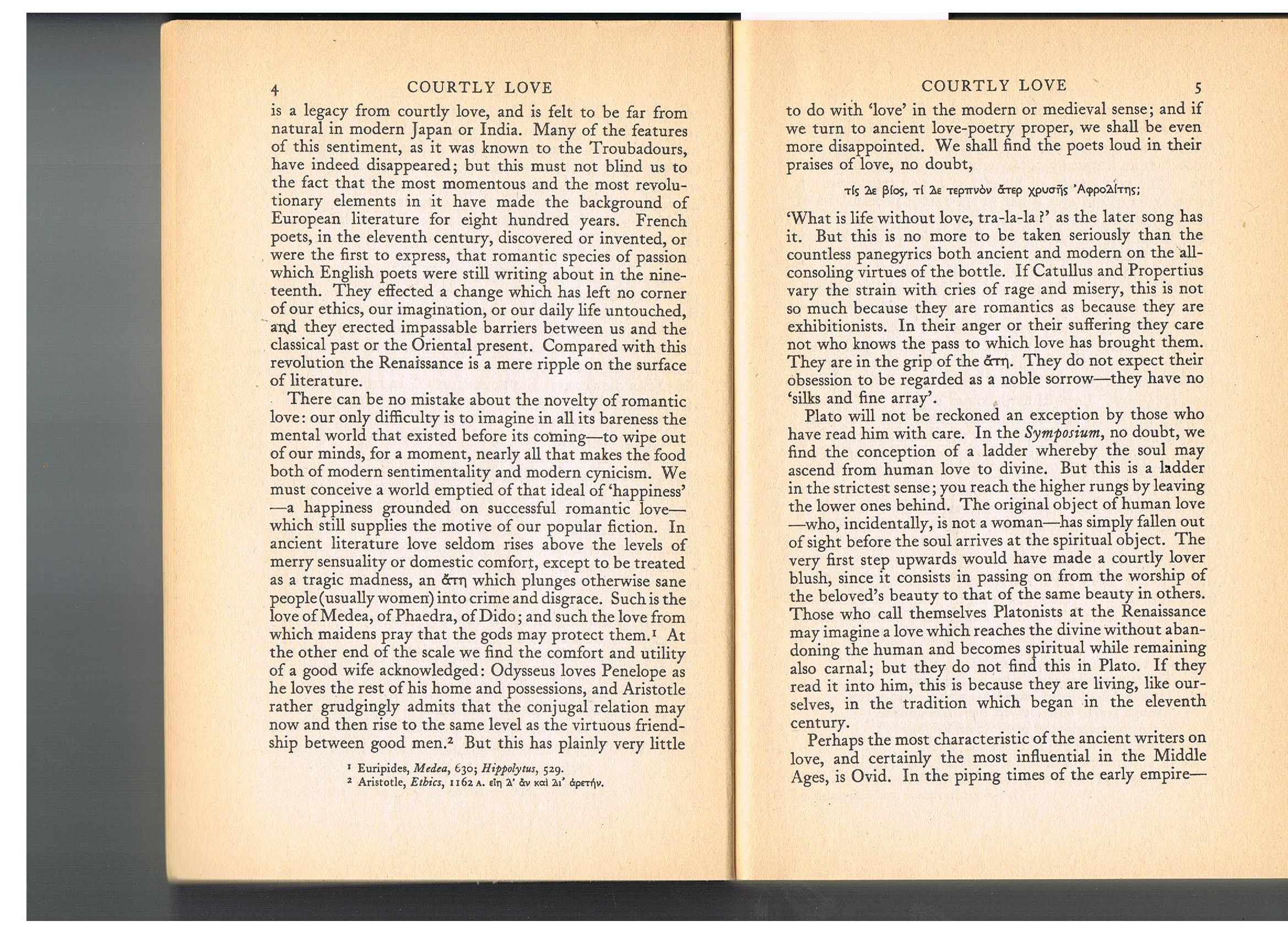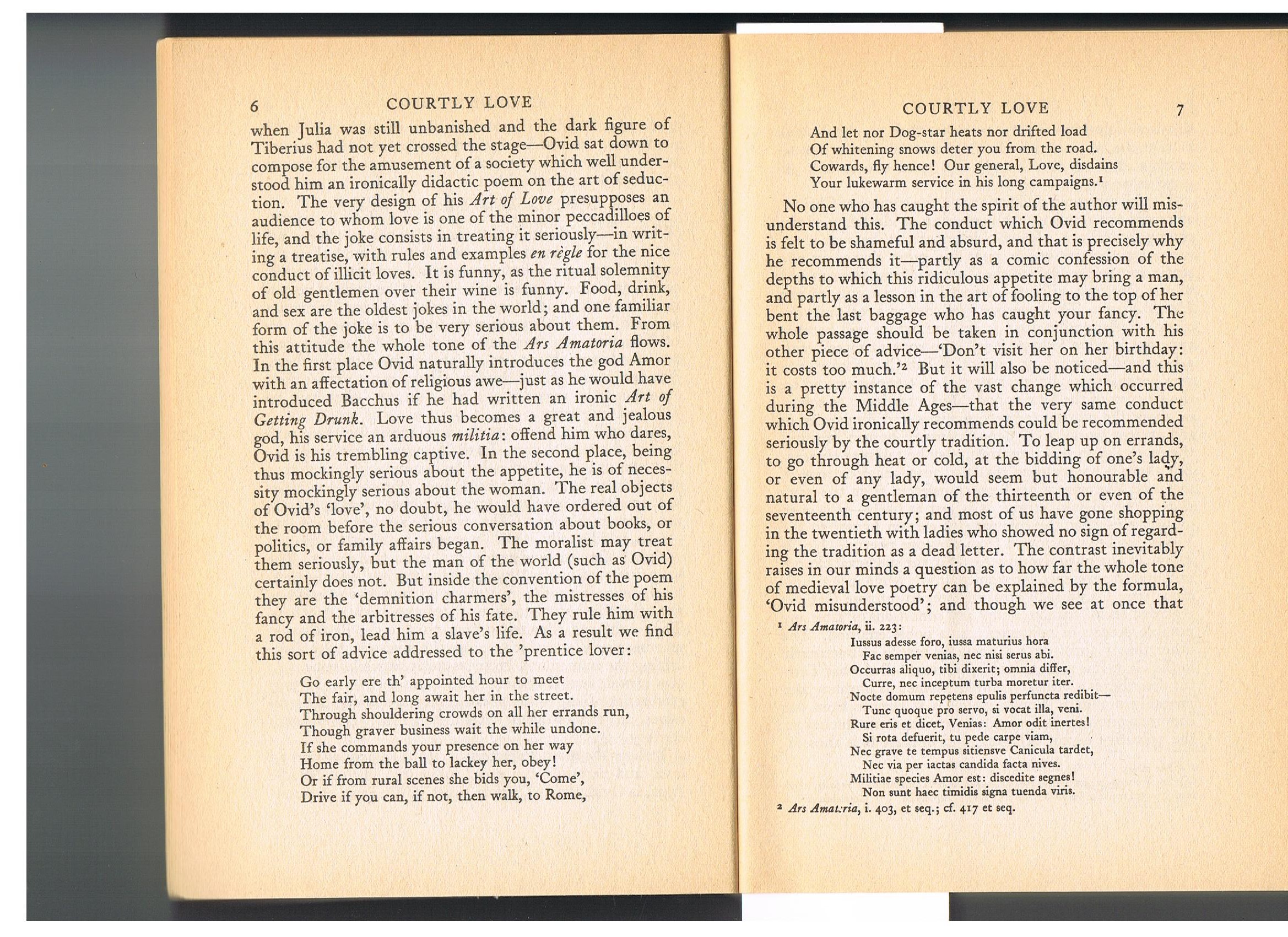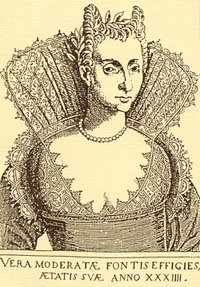
Modesta Pozzo, a protofeminist living in the 1500s in Venice wrote a gynocentric work entitled The Worth of Women: their Nobility and Superiority to Men. The work purportedly records a conversation among seven Venetian Noblewomen that explores nearly every aspect of women’s experience in both theoretical and practical terms. The following excerpts begin with comments by one of the women, Corinna:
![]() Corinna said: “Helena has not managed to prove anything except that men do have some merits when they are married — which is to say, when they are united with a wife. Now that I don’t deny, but without that help from their wives, men are just like unlit lamps: in themselves, they are no good for anything, but, when lit, they can be handy to have around the house. In other words, if a man has some virtues, it is because he has picked them up from the woman he lives with, whether mother, nurse, sister, or wife — for over time, inevitably, some of her good qualities will rub off on him. Indeed, quite apart from the good examples women provide for them, all men’s finest and most virtuous achievements derive from their love for women, because, feeling themselves unworthy of their lady’s grace, they try by any means they can to make themselves pleasing to her in some way. That men study at all, that they cultivate the virtues, that they groom themselves and become well-bred men of the world –in short, that they finish up equipped with countless pleasing qualities– is all due to women.”
Corinna said: “Helena has not managed to prove anything except that men do have some merits when they are married — which is to say, when they are united with a wife. Now that I don’t deny, but without that help from their wives, men are just like unlit lamps: in themselves, they are no good for anything, but, when lit, they can be handy to have around the house. In other words, if a man has some virtues, it is because he has picked them up from the woman he lives with, whether mother, nurse, sister, or wife — for over time, inevitably, some of her good qualities will rub off on him. Indeed, quite apart from the good examples women provide for them, all men’s finest and most virtuous achievements derive from their love for women, because, feeling themselves unworthy of their lady’s grace, they try by any means they can to make themselves pleasing to her in some way. That men study at all, that they cultivate the virtues, that they groom themselves and become well-bred men of the world –in short, that they finish up equipped with countless pleasing qualities– is all due to women.”
Virginia said: “If it is true what you say, and men are as imperfect as you say they are, then why are they our superiors on every count?”
Corinna replied: “This pre-eminence is something they have unjustly arrogated to themselves. And when it’s said that women must be subject to men, the phrase should be understood in the same sense as we are subject to natural disasters, diseases, and all the other accidents of life: it’s not a case of being subject in the sense of obeying, but rather of suffering an imposition; not a case of serving them, but rather of tolerating them in a spirit of Christian charity, since they have been given to us by God as a spiritual trial. But they take the phrase in the contrary sense and set themselves up as tyrants over us, arrogantly usurping that domination over women that they claim is their right, but which is more properly ours. For don’t we see that men’s rightful task is to go out to work and wear themselves out trying to accumulate wealth, as though they were our factors or stewards, so that we can remain at home like the lady of the house directing their work and enjoying the profit of their labors? That, if you like, is the reason why men are naturally stronger and more robust than us — they need to be, so they can put up with the hard labor they must endure in our service.”
Leonora said: “A woman, when she is segregated from male contact, has something divine about her and can achieve miracles, as long as she retains her natural virginity. That certainly isn’t the case with men, because it is only when a man has taken a wife that he is considered a real man and that he reaches the peak of happiness, honor, and greatness. The Romans in their day did not confer any important responsibilities on any man who did not have a wife; they did not allow him to take up a public office or to perform any serious duties relating to the Republic. Homer used to say that men without wives were scarcely alive. And if you want further proof of women’s superior dignity and authority, just think about the fact that if a man is married to a wise, modest, and virtuous woman, even if he is the most ignorant, shameless, and corrupt creature who has ever lived, he will never, for all his wickedness, be able to tarnish his wife’s reputation in the least. But if, through some mischance, a woman is lured by some persistent and unscrupulous admirer into losing her honor, then her husband is instantly and utterly shamed and dishonored by her act, however good, wise, and respectable he may be himself — as if he depended on her, rather than she on him. And indeed, just as a pain in the head causes the whole body to languish, so when women (who are superior by nature and thus legitimately the head and superior of their husbands) suffer some affront, so their husbands , as appendages and dependents, are also subject to the same misfortune and come to share in the ills of their wives as well as in their good fortune.”
Leonora said: “Do you not really believe that men do not recognize our worth? In fact they are quite aware of it, and, even though envy makes them reluctant to confess this in words, they cannot help revealing in their behavior a part of what they feel in their hearts. For anyone can see that when a man meets a woman in the street, or when he has some cause to talk to a woman, some hidden compulsion immediately urges him to pay homage to her and bow, humbling himself as her inferior. And similarly at church, or at banquets, women are always given the best places, and men behave with deference and respect toward women even of a much lower social status. And where love is concerned, what can I say? Which woman, however low-born, is below men’s notice? Which do they shrink from approaching? Is a man of the highest birth ashamed to consort with a peasant girl or a plebian — with his own servant, even? It is because he senses that these women’s natural superiority compensates for the low status fortune has conferred on them. It’s very different in the case of women: except in some completely exceptional freak cases, you never find a noblewoman falling in love with a man of low estate, and, moreover, it’s rare even to find a woman loving someone (apart from her husband) of the same social status. And that’s why everyone is so amazed when they hear of some transgression on the part of a woman: it’s felt to be a strange and exceptional piece of news (I’m obviously excepting courtesans here), while in the case of men, no one takes any notice, because sin for them is a matter of course and an everyday occurrence that it doesn’t seem remarkable any more. In fact, men’s corruption has reached such a point that when there is a man who is rather better than the others and does not share their bad habits, it is seen as a sign of unmanliness on his part and he is regarded as a fool. Indeed, many men would behave better if it were not for the pressure of custom, but, as things stand, they feel it would be shameful not to be as bad as or worse than their fellows.”
Corinna said: “We’ve already proven that on all counts –ability, dignity, goodness, and a thousand other things– we are their superiors and they our inferiors. So I don’t see any reason why they shouldn’t love us, except for the fact that, as I said before, men are by nature so cold and ungrateful that they cannot even be swayed by the influences of the heavens. Though another factor, as we were saying earlier, is their great envy of our merits: they are fully aware of our worth and they know themselves to be full of flaws that are absent in women. For when men have flaws, women have virtues; and if you need proof, it’s quite obvious that in women you find prudence and gentleness where men have anger; temperance where men have greed; humility in place of pride; continence in place of self-indulgence; peace in place of discord; and love in place of hatred. In fact, to sum up , any given virtue of the soul and mind can be found to a greater degree in women than in men.”
Cornelia exclaimed: “What poor wretches men are not to respect us as they should. We look after their households for them, their goods, their children, their lives — they’re hopeless without us and incapable of getting anything right. Take away that small matter of their earning money and what use are they at all? What would they be like without women to look after them? (And with such devotion) I suppose they’d rely on servants to run their households — and steal their money and reduce them to misery, as so often happens.”
Source: The Worth of Women: their Nobility and Superiority to Men
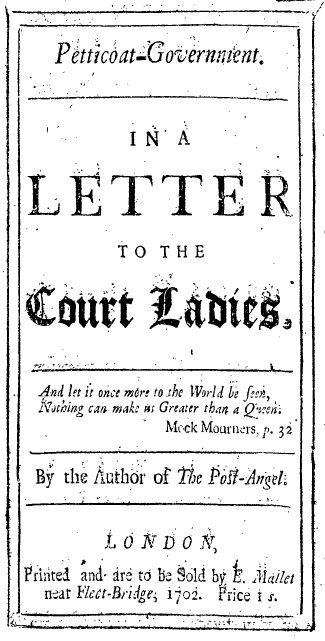
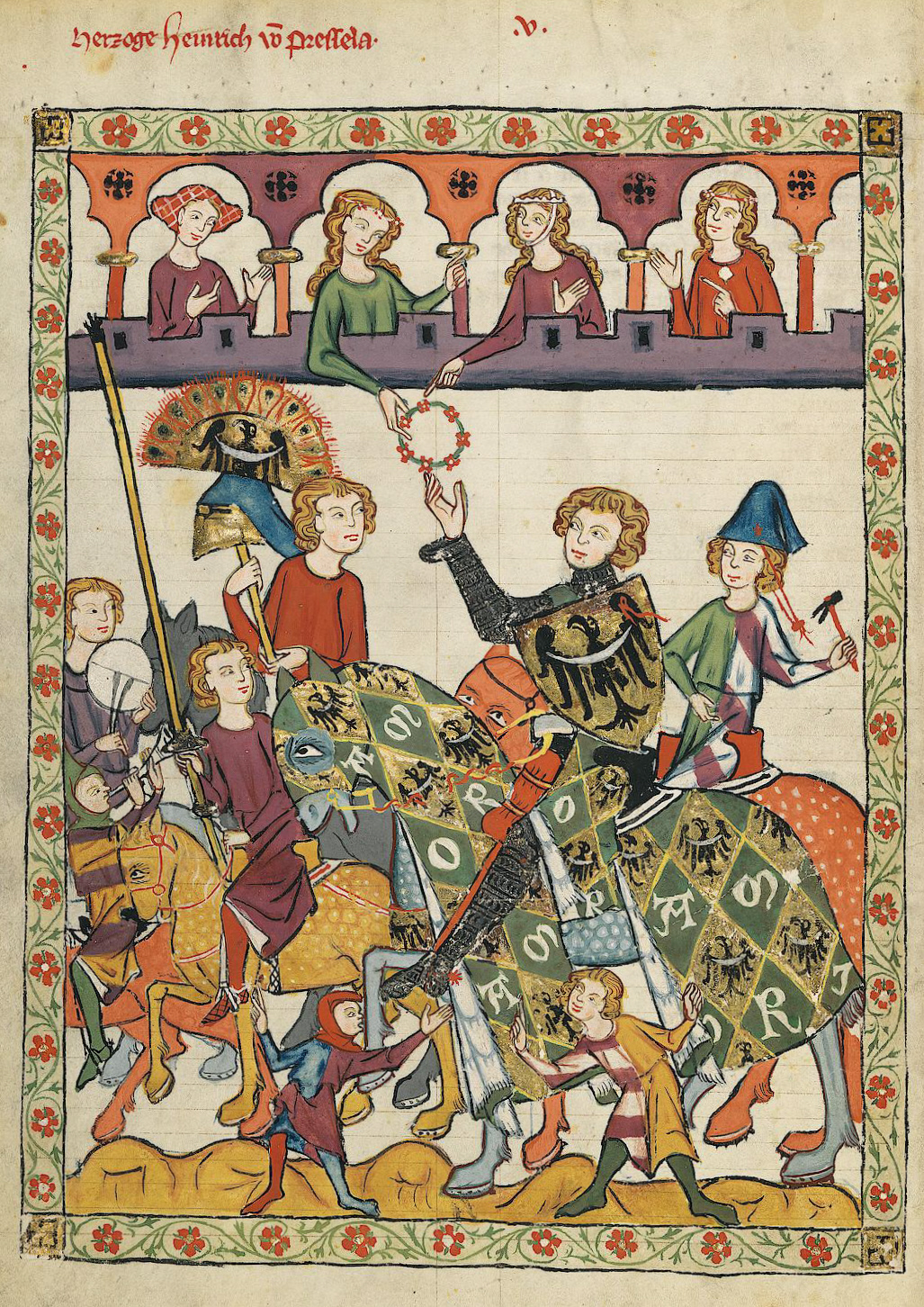
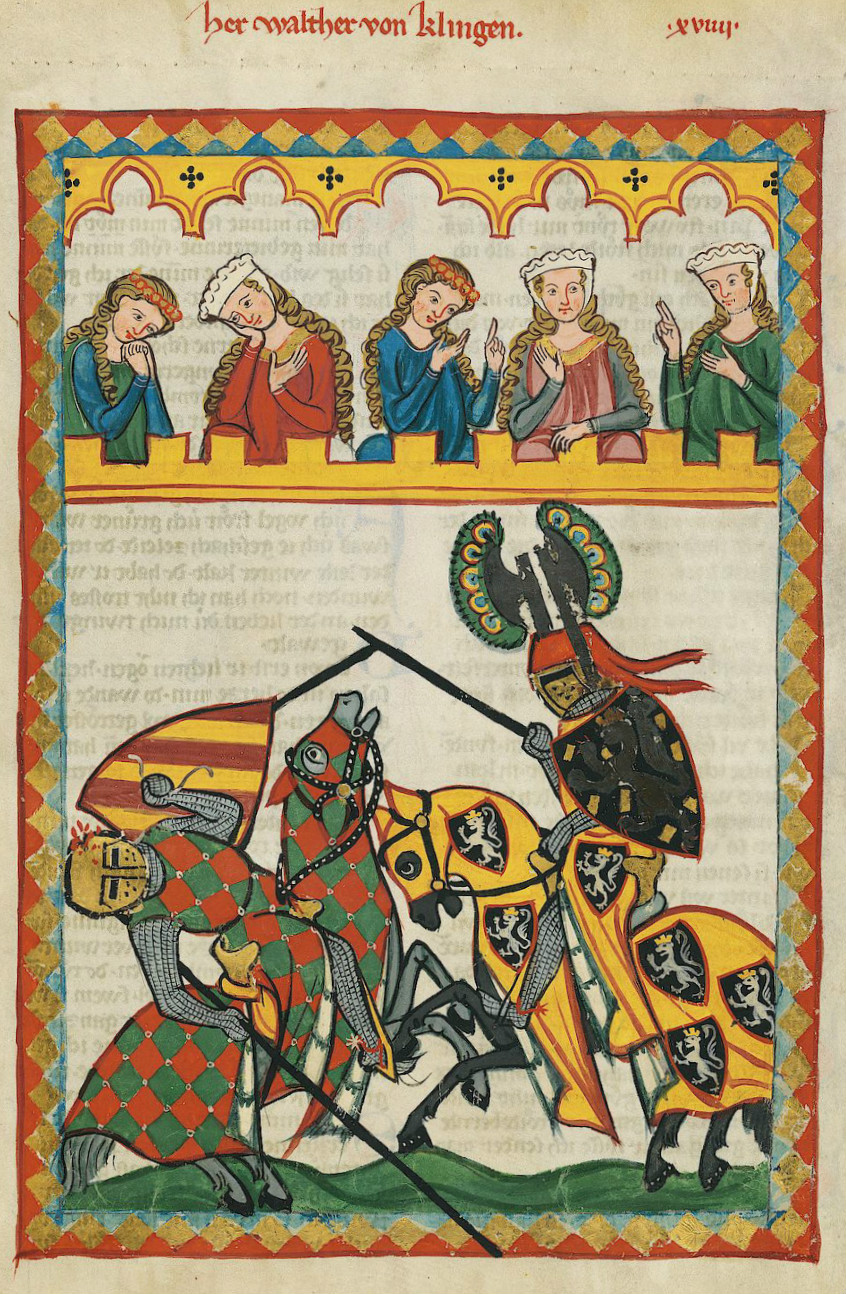
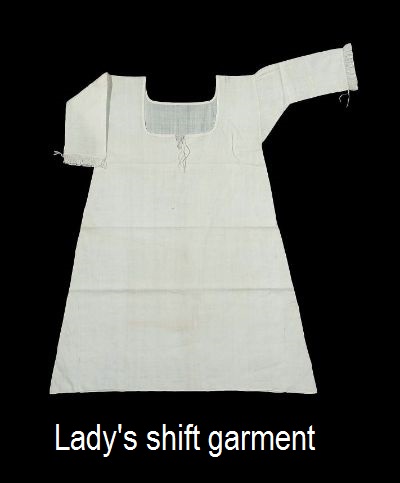
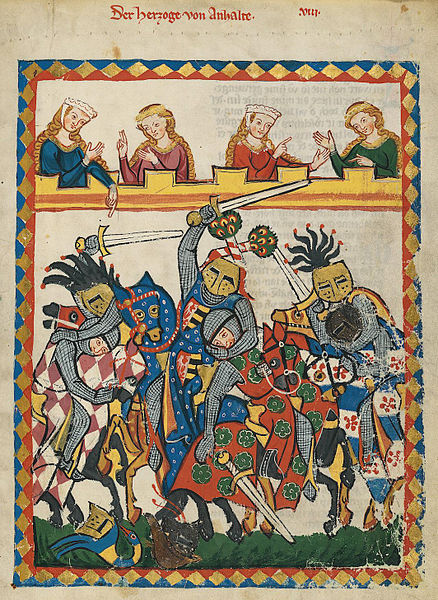
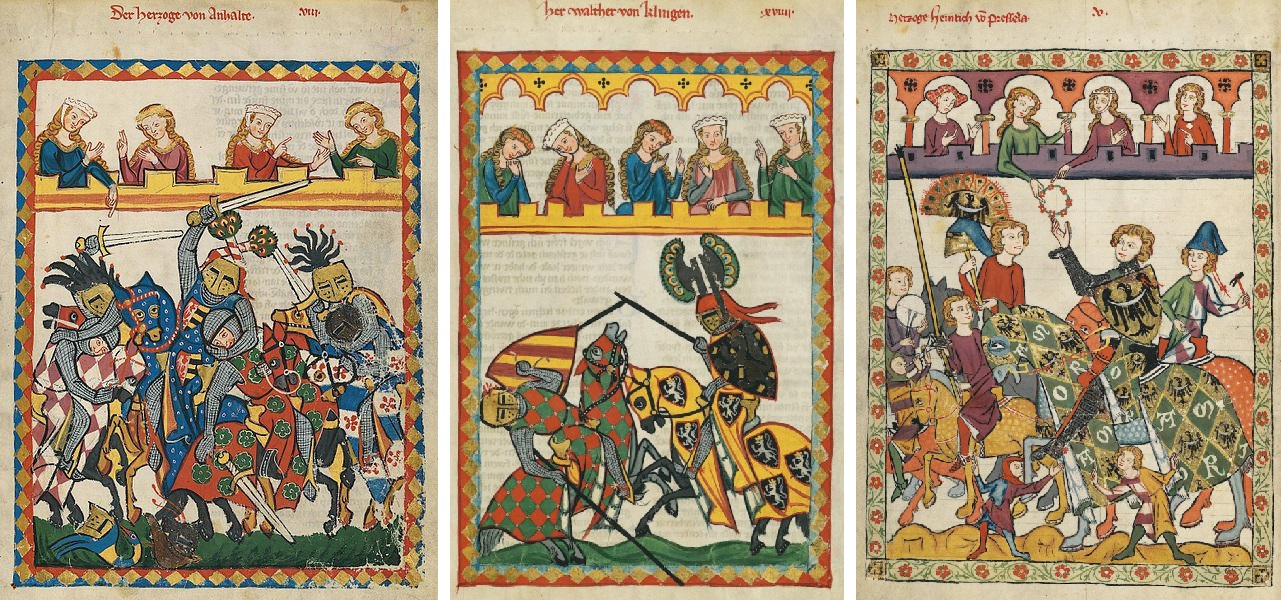
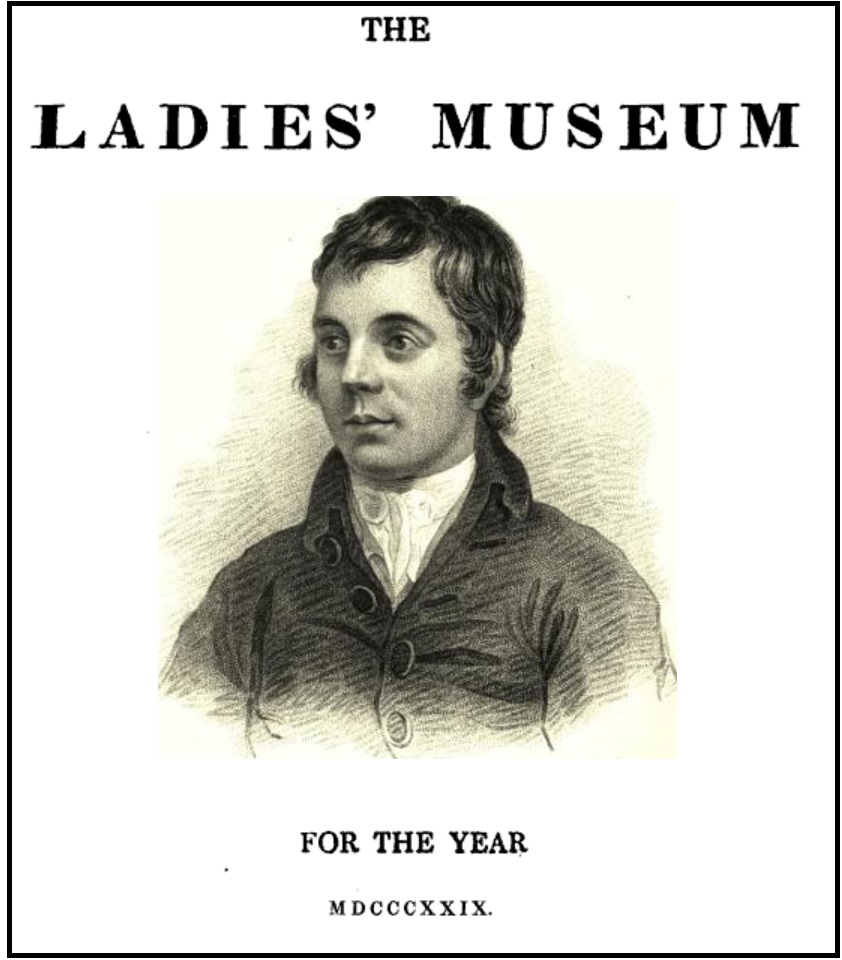
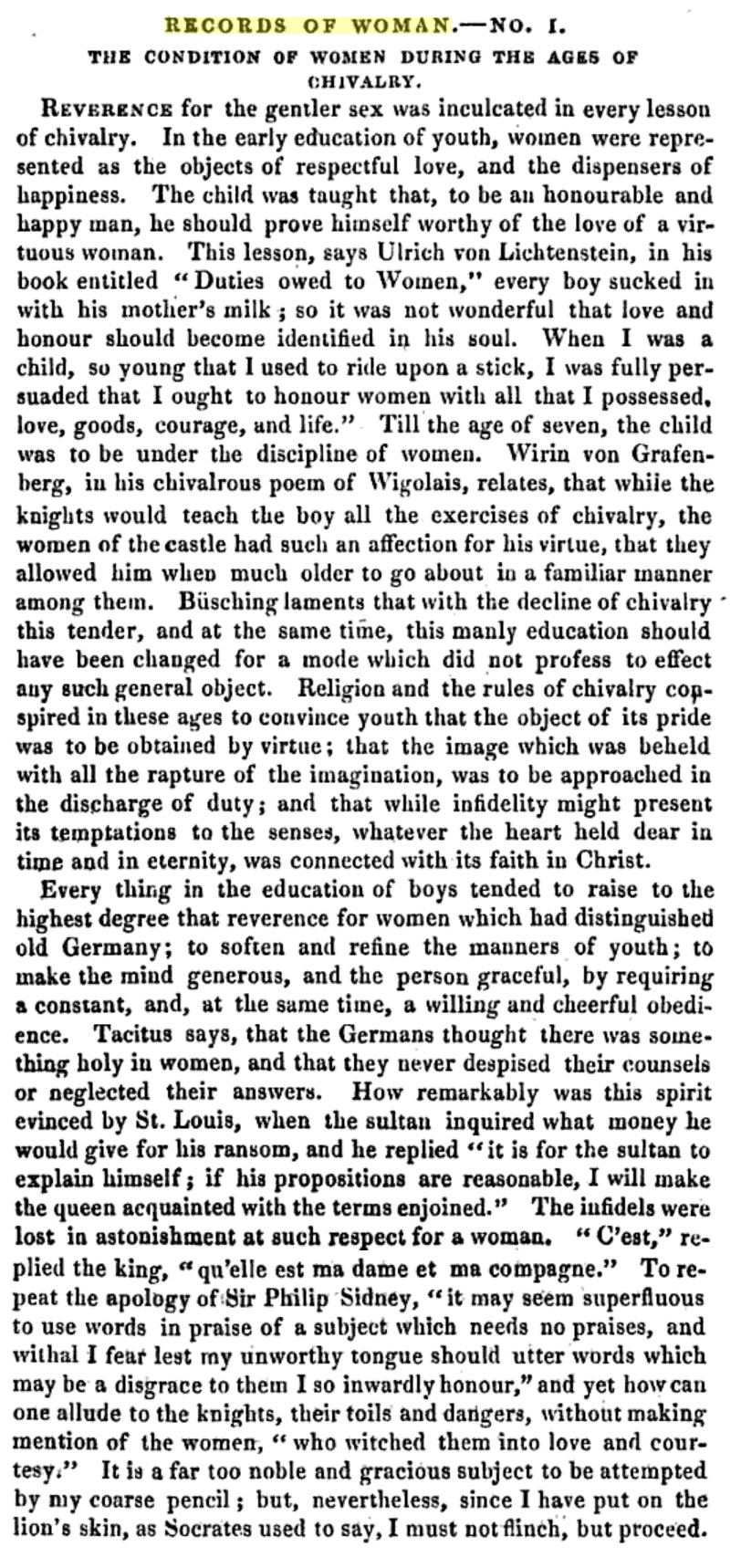
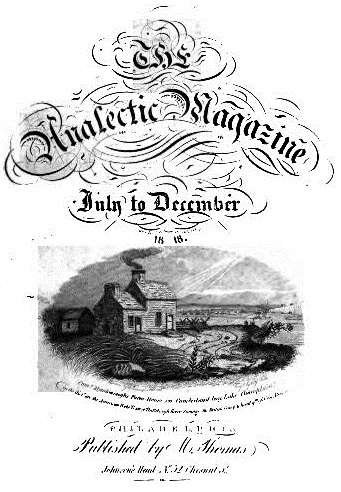
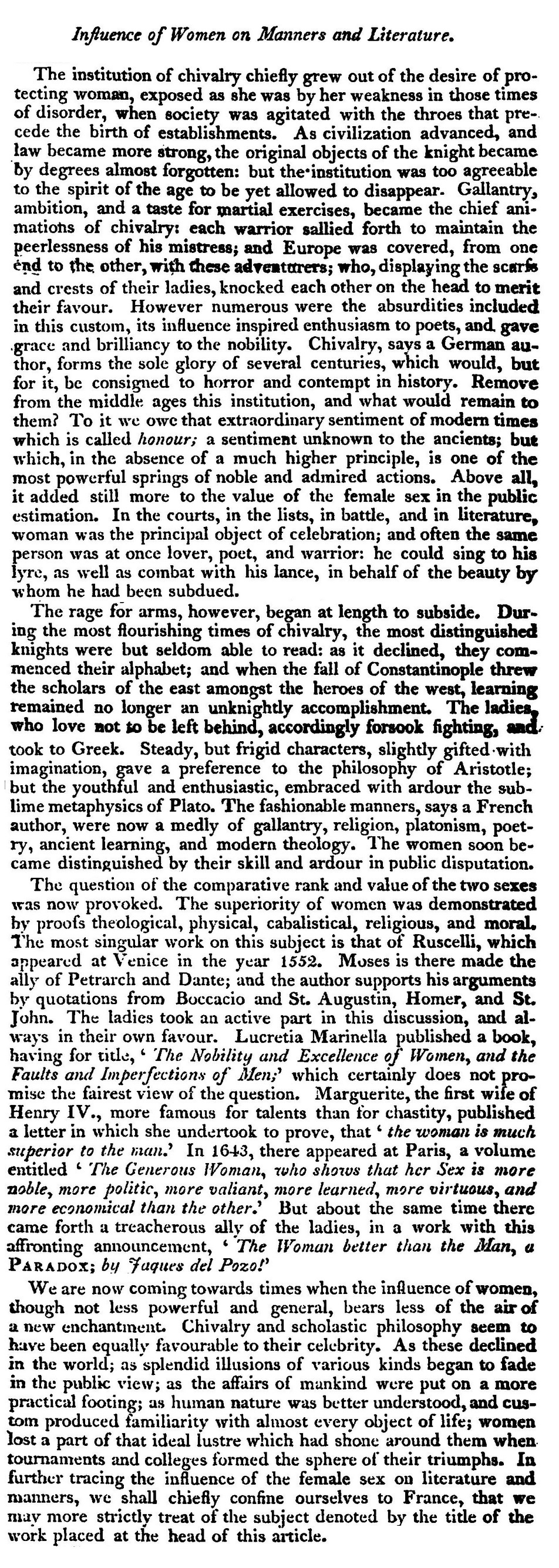
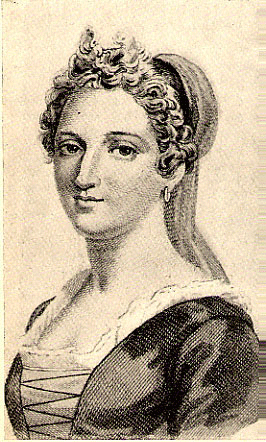

 She begins by stating that her opponents are very learned and that she is very ignorant, which she hopes will not taint their reading of her correspondence. She claims to be weak and timid. Of course, only timid people publish private letters and send copies of it to the Queen.
She begins by stating that her opponents are very learned and that she is very ignorant, which she hopes will not taint their reading of her correspondence. She claims to be weak and timid. Of course, only timid people publish private letters and send copies of it to the Queen.
